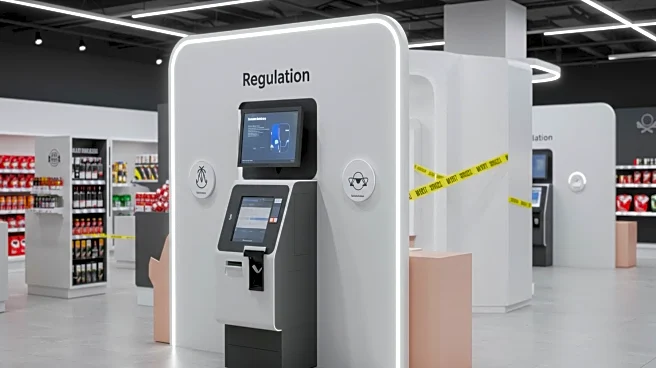What's Happening?
California unions are advocating for a bill that would impose stricter regulations on self-checkout stations in retail stores. The proposed legislation, introduced by State Senator Lola Smallwood-Cuevas, D-Los Angeles, aims to require items needing identification or anti-theft security devices to be processed through employee-operated checkouts. This initiative follows a trend from 2011 that banned alcohol sales at self-checkout stations. The bill mandates that stores must have at least one worker assisting at self-service stations and operate at least one employee-run checkout lane. Additionally, it restricts the type and number of items allowed through self-checkout. Retailers would face penalties for failing to notify employees and unions 60 days in advance of adding new self-checkout stations, with fines potentially reaching up to $200,000.
Why It's Important?
The proposed bill could significantly impact retail operations in California, affecting both store management and consumer experience. By enforcing stricter regulations on self-checkout stations, the bill aims to enhance security and ensure compliance with identification requirements for certain products. This move could lead to increased operational costs for retailers, as they would need to employ additional staff to meet the new requirements. The legislation reflects ongoing tensions between labor unions and automation in the retail sector, highlighting concerns over job security and the role of technology in the workplace. If passed, the bill could set a precedent for similar regulations in other states, influencing national retail practices and labor policies.
What's Next?
If the bill progresses, retailers will need to prepare for potential changes in their checkout processes and staffing requirements. The legislation may prompt discussions among industry stakeholders, including retail companies, labor unions, and consumer advocacy groups, regarding the balance between automation and employment. Retailers might explore alternative solutions to comply with the regulations while minimizing operational disruptions. The bill's advancement could also lead to further legislative actions aimed at regulating technology in the workplace, impacting broader labor and economic policies.










